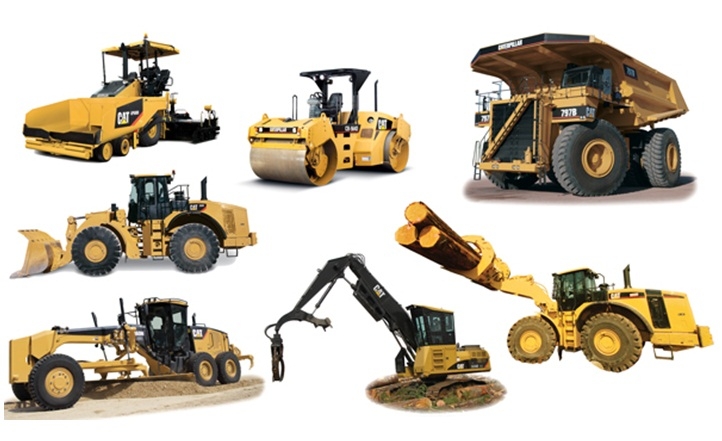Scissor Lift Rental in Tuscaloosa AL: Safe and Effective Raising Solutions
Scissor Lift Rental in Tuscaloosa AL: Safe and Effective Raising Solutions
Blog Article
Checking Out the Financial Advantages of Renting Construction Tools Compared to Having It Long-Term
The decision between having and renting out construction equipment is essential for financial management in the industry. Renting out offers immediate expense financial savings and operational adaptability, enabling business to allot sources more successfully. Understanding these nuances is crucial, particularly when considering just how they line up with details job needs and economic approaches.

Cost Contrast: Renting Out Vs. Owning
When assessing the financial ramifications of renting out versus owning construction equipment, a detailed price contrast is necessary for making educated choices. The selection between renting out and owning can significantly affect a company's profits, and understanding the associated costs is crucial.
Renting out building and construction equipment typically includes reduced upfront costs, permitting organizations to designate funding to various other functional requirements. Rental prices can build up over time, possibly surpassing the expense of possession if devices is needed for an extensive duration.
On the other hand, owning building tools calls for a considerable initial investment, together with recurring expenses such as funding, devaluation, and insurance policy. While possession can cause lasting financial savings, it likewise ties up resources and might not offer the same level of versatility as leasing. In addition, having devices necessitates a commitment to its usage, which may not always line up with project needs.
Eventually, the decision to lease or have needs to be based upon an extensive analysis of certain task requirements, economic capability, and lasting strategic goals.

Maintenance Expenses and Responsibilities
The option between possessing and leasing building and construction equipment not just entails economic considerations however additionally encompasses ongoing upkeep expenditures and duties. Having devices needs a considerable commitment to its maintenance, which consists of regular assessments, repair work, and possible upgrades. These duties can swiftly accumulate, leading to unforeseen prices that can strain a budget plan.
In comparison, when renting out equipment, maintenance is typically the obligation of the rental business. This setup permits specialists to avoid the monetary burden linked with damage, as well as the logistical obstacles of scheduling repair work. Rental agreements often consist of provisions for upkeep, implying that service providers can concentrate on completing projects rather than worrying about equipment condition.
Furthermore, the varied variety of equipment offered for rental fee enables firms to pick the most current versions with sophisticated innovation, which can improve effectiveness and efficiency - scissor lift rental in Tuscaloosa Al. By going with leasings, companies can prevent the long-term responsibility of equipment depreciation and the connected maintenance frustrations. Ultimately, assessing maintenance expenses and responsibilities is important for making an informed decision regarding whether to have or rent out building tools, substantially affecting total project expenses and functional performance

Devaluation Effect on Ownership

A significant variable to think about in the decision to have building and construction equipment is the impact of devaluation on overall possession prices. Devaluation stands for the decline in value of the tools in time, influenced by aspects such as usage, damage, and innovations in technology. As equipment ages, its market value diminishes, which can significantly affect the proprietor's financial setting when it comes time to trade the devices or offer.
For building and construction companies, this devaluation can equate to significant losses if the equipment is not utilized to its max capacity or if it lapses. Proprietors need to represent depreciation in their monetary forecasts, which can bring about higher overall costs contrasted to renting. Furthermore, the tax ramifications of devaluation can be complicated; while it here might offer some tax obligation benefits, these are usually countered by the fact of decreased resale value.
Inevitably, the problem of depreciation highlights the significance of recognizing the long-term monetary commitment associated with possessing building and construction devices. Business need to thoroughly examine exactly how frequently they will make use of the tools and the prospective economic effect of devaluation to make an informed decision regarding ownership versus renting out.
Monetary Adaptability of Leasing
Leasing building and construction equipment uses significant monetary flexibility, enabling firms to allot resources much more successfully. This versatility is especially essential in a market identified by changing project needs and varying work. By opting to rent out, companies can prevent the substantial resources expense required for purchasing tools, protecting money flow for various other operational needs.
Additionally, renting devices allows business to customize their devices options to certain project demands without the long-term dedication related to possession. This indicates that organizations can quickly scale their tools inventory up or down based upon awaited and existing task requirements. As a result, this versatility decreases the risk of over-investment in equipment that might become underutilized or out-of-date with time.
An additional financial advantage of leasing is the possibility for tax advantages. Rental repayments are often considered business expenses, permitting prompt tax deductions, unlike depreciation on owned here devices, which is topped numerous years. scissor lift rental in Tuscaloosa Al. This immediate cost recognition can even more improve a firm's money position
Long-Term Project Factors To Consider
When reviewing the lasting demands of a construction service, the decision between leasing and having equipment ends up being extra complicated. Trick factors to think about consist of project period, frequency of use, and the nature of upcoming jobs. For projects with extended timelines, buying equipment may appear beneficial due to the potential for reduced total costs. However, if the devices will certainly not be made use of constantly throughout projects, having might result in underutilization and unnecessary expenditure on upkeep, insurance, and storage.
The construction industry is advancing swiftly, with new devices offering improved effectiveness and safety functions. This adaptability is especially valuable for companies that manage varied tasks requiring various types of devices.
Additionally, financial stability plays a crucial function. Possessing equipment commonly entails substantial capital expense and devaluation problems, while renting allows for even more foreseeable budgeting and cash money flow. Ultimately, the selection in between having and renting out ought to be straightened with the critical objectives of the building organization, thinking about both expected and present task demands.
Verdict
In conclusion, renting building and construction equipment supplies substantial monetary advantages over lasting ownership. Inevitably, the decision to rent out instead than very own aligns with the dynamic nature of construction tasks, allowing for versatility why not find out more and accessibility to the latest equipment without the economic concerns associated with ownership.
As equipment ages, its market value diminishes, which can substantially impact the owner's financial position when it comes time to sell or trade the equipment.
Renting out building equipment supplies significant economic versatility, permitting business to allocate resources a lot more successfully.Furthermore, renting out devices allows business to tailor their equipment selections to particular job needs without the lasting commitment connected with possession.In conclusion, renting construction equipment provides substantial financial advantages over long-lasting possession. Eventually, the choice to rent instead than own aligns with the vibrant nature of building and construction tasks, allowing for flexibility and access to the most recent tools without the monetary burdens connected with ownership.
Report this page